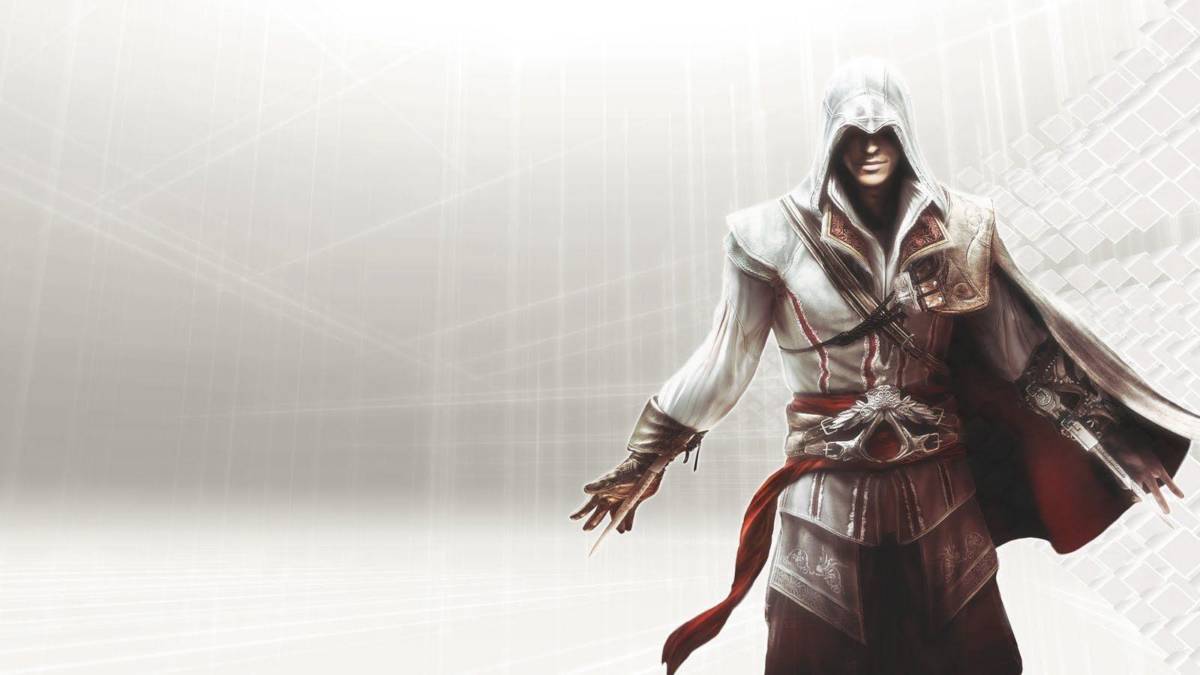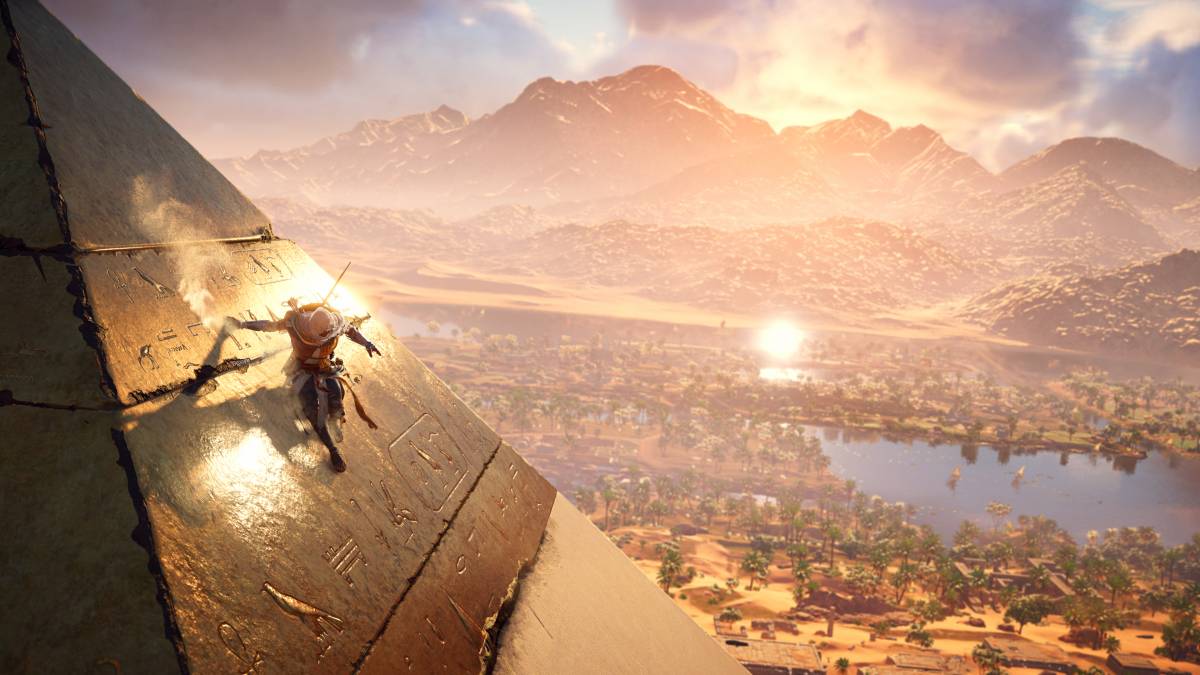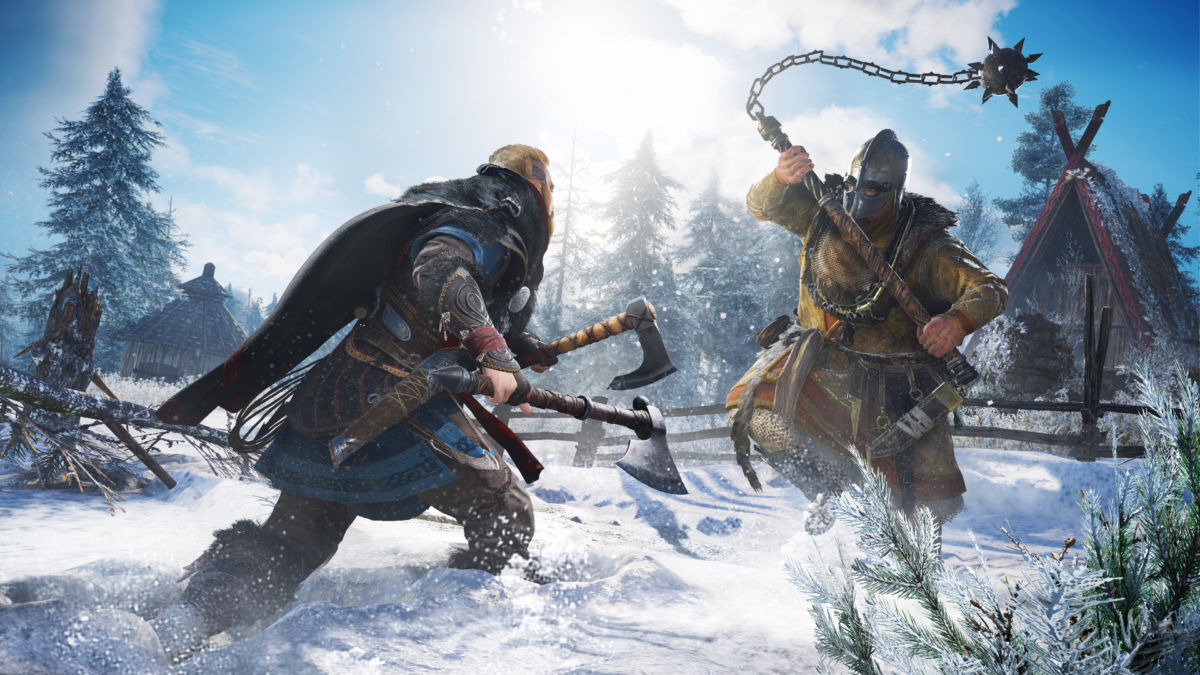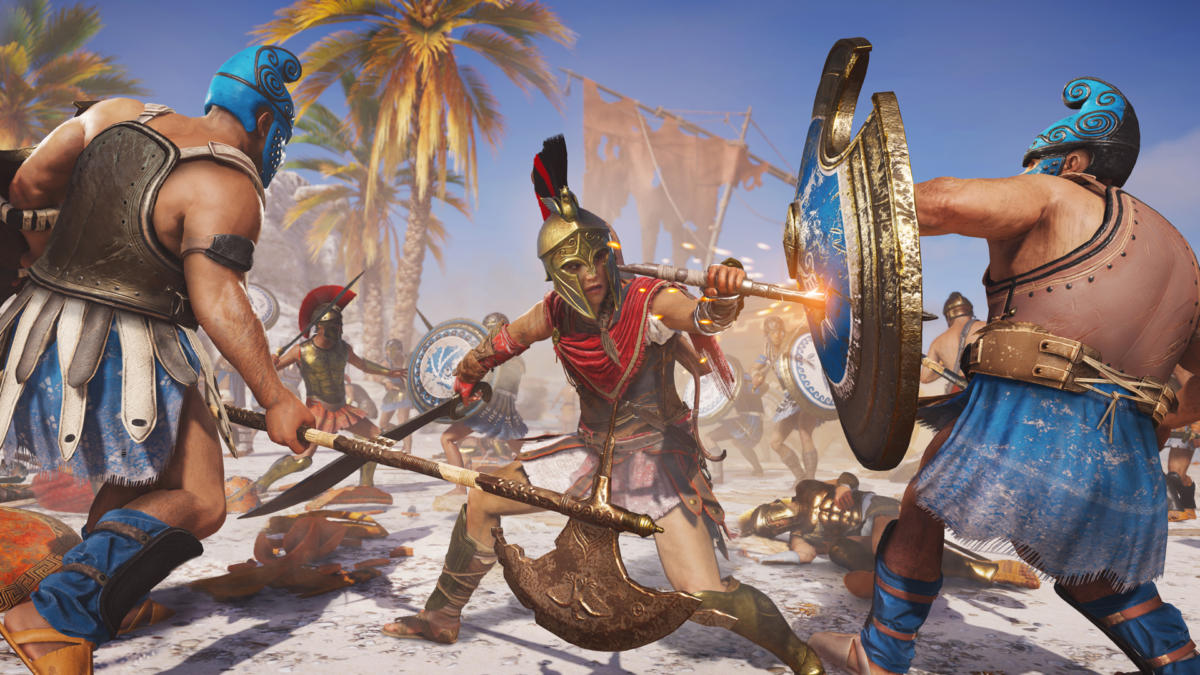Despite a focus on stealth, out-and-out melee combat has been integral in building Assassin’s Creed’s loyal and abundant fanbase. Yet over its 14-year history, the games have enjoyed as much criticism as praise for a system which has been cited as everything from too easy, too difficult, too simplistic and too cluttered.
When Creed headed in a new direction with the release of 2017’s Origins, it pushed the series in a challenging new direction. But have the assassins roamed too far from their humble beginnings, and what’s next for a franchise seemingly struggling to keep everyone happy and preserve its own distinctive character?
Genesis

The original Assassin’s Creed employed a basic counter-attack system revolving around timing of defensive parries. Hit the right button when an enemy came in for the kill and you’d be rewarded with a fatal finishing move which would swiftly dispatch them. Multiple sequels opted to continue this basic template, albeit with multiple embellishments, additions and tweaks. Ezio’s series brought in new weapons and introduced ranged attacks via a new crossbow and wrist-mounted gun, expanded upon in Black Flag and Rogue in the form of pistols, and there was already a greater focus on all-out attack by the time Assassin’s Creed: III had popped its revolutionary head out of its shell in 2012.
Yet despite these additions and adjustments, the key problem with the combat remained the same; it was simply too easy. Find yourself surrounded by dozens of hostile enemies and wielding nothing but a street broom, and five minutes later you’d be walking from the scene without a scratch while leaving the streets looking like something from the climax of a Tarantino movie. Ubisoft eventually decided things needed to change.
A New Direction

And change they did. 2017’s Origins rebooted the franchise, breaking from the series’ established roots in favour of an RPG template complete with a fully revamped combat system. Fights became looser and freer, the counter-attack system replaced by an emphasis on dodging, blocking and timed attacks, with a bow becoming a key secondary weapon. The combat was now now more challenging and varied, as players couldn’t rely on a single button tap to execute a perfect kill. Fatalities had to be earned through skill and focused aggression, and players were increasingly forced to experiment with weapons and tactics to find their own effective playstyle.
It was a divisive shake-up. Many felt that the new system was merely the replacement of one form of oversimplification for another, complaining that combat was simply ‘attack’, ‘dodge’ and ‘defence’ and had lost the satisfying tactility of earlier titles, while reliance on assignable abilities and ‘grinding down’, especially in Odyssey, made fights feel stodgy and exhausting rather than fast and kinetic. Assassin’s Creed had reinvented its combat, but lost its identity.
Vahalla seems to be negotiating a more accessible middle way. The RPG-style still remains, but the animations and visuals feel more earthy and rooted in the real world, so swings of Eivor’s axe aren’t accompanied by large swathes of colour which yank the player out of the immersive Anglo-Saxon setting. Viking combat is sharper and faster, and out-and-out aggression is usually rewarded as Eivor can often smash through the defences of all but the most high-level enemies. Many Saxon foes have lower levels of health than the ‘sponges’ of Odyssey, and new mechanics, such as a stamina bar and enemy weak spots, add further variety.
Again, this has all pleased some and alienated others. Some applaud new enemy weak spots, arguing this is a new opportunity to expand on their skillset in the pursuit of a more efficient victory. Others see it as the game replacing one form of spamming for another. But what’s consistently palpable is a sense that long standing fans of the series still aren’t entirely satisfied. Valhalla’s combat attempted a compromise, but the game has still drawn criticism from some corners who feel that things have strayed too far from the roots to which they are so attached. So, what can the titanic franchise’s next instalment do to make its combat an experience which appeases all sides?
Into The Future

Ubisoft need to focus less on what they can add to a now rammed box of combat tricks and instead strive to recapture how these encounters feel to players. I dug out an old copy of the original Assassin’s Creed for research purposes, and I was struck by how it creates a remarkable impression of weight, even if the mechanics are still pretty rudimentary. Newer instalments have sometimes sacrificed a sense of touch and finesse to their fight sequences, occasionally feeling blocky, chunky and unfocused. If the series is going to satisfy fans in the future, then it needs to address not only how combat looks and plays, but how it feels.
Ghost of Tsushima, for instance, drew praise for its authenticity because blocking animations were realistic and rewarding as weapons organically slid off one another and Jin dodged with smooth steps, rather than unfeasible rolls and jerky directional surges. The RPG mechanics can remain, but not at the cost of player immersion, and combat animations need to be updated to give players a deeper sense of visual feedback.
Secondly, Assassin’s Creed needs to make concessions to its roots without ripping apart its new system. Ubisoft made a concerted effort to move away from the overpowered reliance on lethal counter-attacks, but those same developers have failed to realise that this is also what made combat so popular in the first place. A feasible third way, which still encourages aggressive gameplay, well-timed dodges and focused attacks, could still integrate a counter system which rewards players with an effective, rather than deadly riposte. Unity’s combat is lauded as some of Creed’s best (although many hate it) because it reduced the emphasis on overpowered counter-kills without tearing up the established template of earlier incarnations. Is a marriage of such systems really so unfeasible? Can’t we have a focus on offence which still rewards defensive timing but without making it the sole combat tactic?
Other suggestions for remedies have been a little more out there. Introducing combos would add an element of skill into inputting the correct string sequence, but risks turning games into Dynasty Warriors. A ‘chaining’ system which rewards timing of attacking blows, implemented in earlier Creed titles, could inflict greater damage even if this wasn’t necessarily a fatal blow. Different stances, too, might add a little spice to proceedings, but Ubisoft have to be careful they aren’t simply accused of ripping Sucker Punch off. Yet none of these get to the heart of the issue, which is that a good system is built on realising its core mechanics effectively rather than overloading on badly thought-out gimmicks. To many, the combat just doesn’t feel right. It doesn’t feel satisfying. It doesn’t feel like Assassin’s Creed anymore.
The solution requires balance and refinement, not aimless culling. Franchises should strive for development rather than appeasing the zeitgeist, and Ubisoft won’t, and shouldn’t, return to the past. New features such as assignable abilities, targeted arrow shots, and stamina bars are here to stay, but they shouldn’t become a last resort for players tired from endless hacking and slashing. Skill trees, too, are essential for rewarding players with new mechanics and fighting options to make gameplay more diverse. New mechanics should all be preserved, but Ubisoft need to recognise that what made ‘classic’ AC titles popular was that melee had a distinctive aesthetic identity which looked and felt satisfying, immersive and unique. Expanding Creed’s fighting arsenal will push the series forward, but marrying this expansion with a sense of feeling and nuance is their next great challenge.
And whatever happens next, they must bring back the broom from AC II.
READ MORE: Hey, Can We Get Assassin’s Creed Multiplayer Again?
Some of the coverage you find on Cultured Vultures contains affiliate links, which provide us with small commissions based on purchases made from visiting our site. We cover gaming news, movie reviews, wrestling and much more.



